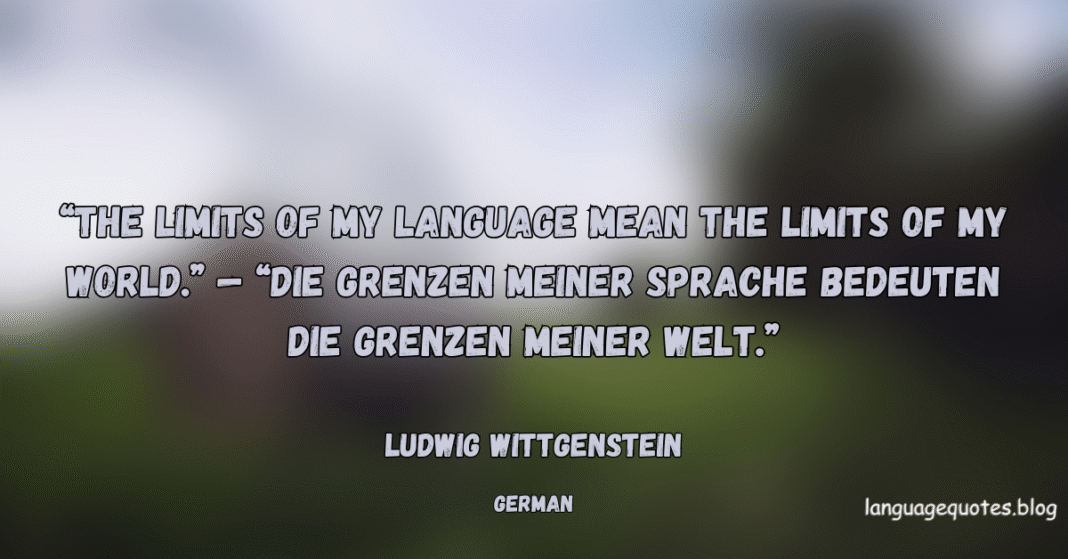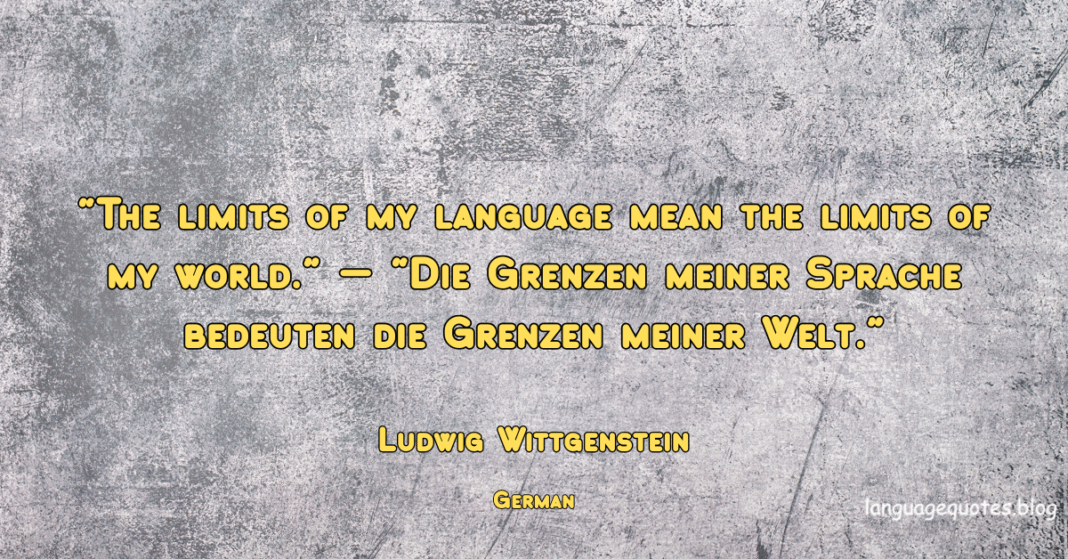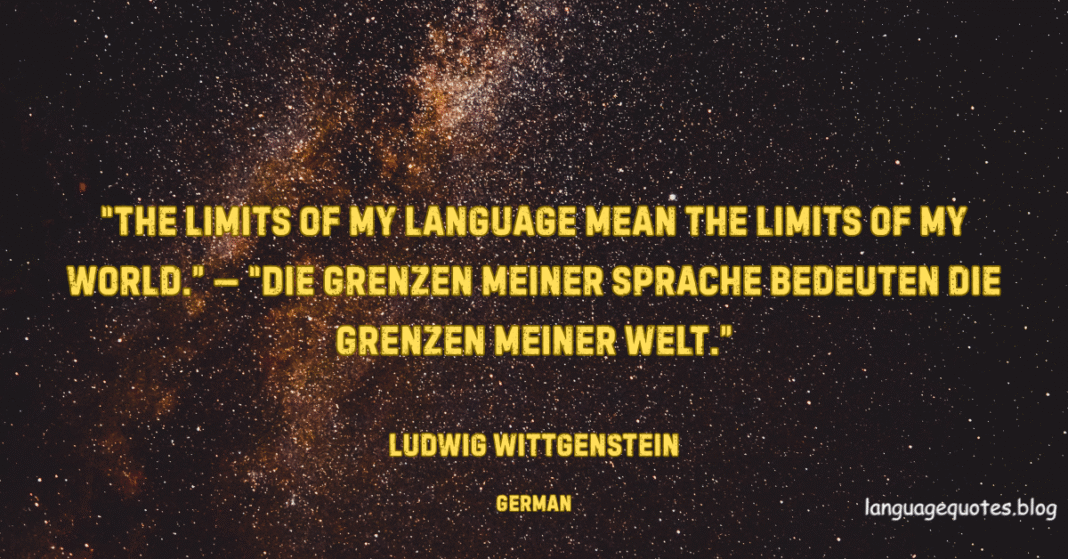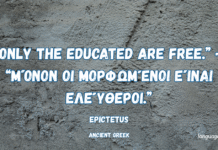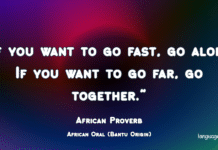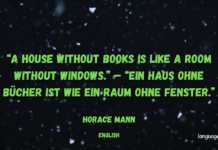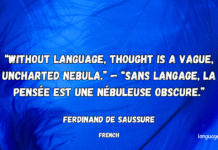“The limits of my language mean the limits of my world.”
Original (German): “Die Grenzen meiner Sprache bedeuten die Grenzen meiner Welt.”
— Ludwig Wittgenstein
🗨️ Two-Line Commentary:
Wittgenstein’s insight reminds us that language doesn’t just reflect reality—it defines it. To know more, to feel more, to be more—we must first say more.
🌍 Introduction: Language as the Perceptual Border
When philosopher Ludwig Wittgenstein stated, “The limits of my language mean the limits of my world,” he offered more than a comment on communication—he revealed a deep philosophical truth about the relationship between language, thought, and reality. Though on the surface, this quote may seem to address vocabulary or translation, its deeper message resonates across disciplines like philosophy, psychology, cognitive science, linguistics, and even art and literature.
Wittgenstein’s quote is a mirror that reflects the nature of human understanding. It suggests that if we cannot describe or name something, we may struggle to truly grasp it. In this way, language doesn’t merely help us communicate; it shapes the very boundaries of our perception and awareness. Through this lens, the philosopher invites us to ask: Does my language limit how I experience the world?
📖 Who Was Ludwig Wittgenstein?
Ludwig Wittgenstein (1889–1951) was an Austrian-British philosopher whose works redefined 20th-century thought, especially in the fields of language, logic, and epistemology. He published two major philosophical works: Tractatus Logico-Philosophicus and Philosophical Investigations, both of which explored the mechanics of language and its role in shaping reality.
Wittgenstein didn’t treat language as a neutral tool for exchanging information. He believed that the structure of language molds our thinking. If our language lacks the means to express a concept, we might not even be able to form the thought. Thus, the “limits of language” are also the limits of cognitive possibility—a radical idea that continues to influence scholars and thinkers today.
🧱 Language as a Worldmaker
Language doesn’t just help us define the world—it builds it. Each word is more than a sound or symbol; it carries meaning, history, cultural nuance, and emotional resonance. Together, these elements form the scaffolding through which we construct our understanding of reality.
For example:
-
If you lack a word for an emotion, can you fully recognize or articulate that feeling?
-
Cultures that rely on cardinal directions instead of left/right actually navigate space and perceive orientation differently.
-
Children deprived of early language exposure face challenges not just in speech, but in conceptual development and emotional expression.
These are not theoretical examples—they reflect the lived cognitive differences shaped by language. Wittgenstein’s insight affirms that language is not attached to experience—it is embedded in it.
🧠 The Psychology of Vocabulary: Language and Thought
Modern research in linguistics and psychology reinforces Wittgenstein’s claim. The Sapir-Whorf Hypothesis, also known as linguistic relativity, argues that the structure of a language shapes its speakers’ worldview. For instance, Inuit languages have dozens of words for snow, each capturing a subtle variation that English speakers might miss. Likewise, some languages without a future tense affect how their speakers perceive time and planning.
In this light, Wittgenstein’s assertion is not metaphorical. “The limits of my language mean the limits of my world” is a psychological reality: if you cannot articulate a concept, your mind may not fully process or engage with it.
✍️ A Writer’s View: Words Open Inner Worlds
For writers, poets, and thinkers, this quote is both a warning and an invitation. A narrow vocabulary can confine creativity. But expanding one’s language—by reading, writing, learning new languages—broadens not only artistic expression but also emotional depth, intellectual insight, and personal growth.
Every word added to our lexicon is a window opened, a barrier removed, a new way of seeing unlocked. This is why multilingual individuals often feel that they live with multiple inner selves, each enriched by its linguistic framework. As Samuel Johnson once noted, language is not just the clothing of thought—it is the architecture of thought.
🔕 Ethics, Philosophy, and the Unspeakable
In Tractatus, Wittgenstein famously wrote, “Whereof one cannot speak, thereof one must be silent.” This complements his view on language’s limits: not everything can be said, and not all truths are verbal. Some realities—emotions, spiritual experiences, artistic visions—exist beyond linguistic reach.
This is not a flaw of language, but a truth about existence. Understanding language’s limitations invites us to respect the ineffable. Silence isn’t empty—it’s sacred. When words fail, what remains is not confusion, but profound stillness. In that quiet, meaning still lives.
🌐 Cultural Implications: Language and Worldview
In a globalized era, this quote has even greater significance. Every language is a cultural universe containing unique values, humor, rituals, and ways of knowing. Learning a new language doesn’t just give us the ability to translate—it gives us the power to feel differently, observe differently, and understand differently.
Wittgenstein’s words are also a call to action in preserving endangered languages. When a language dies, so does an entire way of seeing the world. The erosion of linguistic diversity narrows humanity’s collective soul. To protect language is to protect wisdom, identity, and imagination.
🔚 Conclusion: Language as Expansion of Self
“The limits of my language mean the limits of my world.” This is not just a linguistic reflection—it is a map of human potential. Every new word, every mastered metaphor, every language learned widens the scope of our inner world.
We grow when we challenge our linguistic boundaries. We evolve when we say more, read more, listen more. And when we finally reach the end of what language can contain, we are left with silence—not as absence, but as invitation.
In that silence, a new world waits to be formed.


